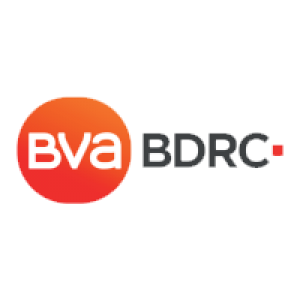Anyone working in the teaching profession knows that there is no single correct way of teaching. It very much depends on the child. But the challenge for schools is that they need to teach classes of around 20+ children, who respond differently to the various styles of teaching.
What is structured and discovery based learning styles?
One of the most common arguments is whether children should be taught in a more ‘structured’ manner, e.g. the learning of skills that have clearly been analysed beforehand by others and presented efficiently to the student as the right answer. Some criticize this as learning by rote and more characteristic of local schools (that they are trying to get away from). But others state that this is indeed an efficient way of learning, allowing a child to adsorb more facts, and not to go off on meaningless tangents.
The alternative is more ‘discovery-based learning’, where the child needs to find the answers themselves through exploring or experimentation.
What do parents want for their children?
Within BVA BDRC’s annual survey of parents who send children to international schools, we put a preference question to parents to see if they wanted ‘more structure’ or ‘more discovery’ based learning for their children, or ‘an equal measure’. Since the needs can be quite different by stage of schooling, we asked this both in the context of primary school years (5-11 years) and secondary school years (11-18 years).
The vast majority of parents expressed a preference, only a few ‘did not know’, demonstrating that parents think they know what is best for their child. About half opted for ‘an equal balance of structured and discover-based learning’ for both primary and secondary schooling.
For primary years, there was somewhat more inclination towards discovery-based learning, and then more of a tilt towards structured in secondary years. This highlights a desire for parents of younger children to have the enjoyment of discovery, when getting it wrong would matter less. Whereas in secondary years examinations are taken, so the right answer will matter more.
International schools have probably done more towards promoting discovery-based learning through their International Baccalaureate (IB) curricular, which “encourages children to think critically and challenge assumptions”. Indeed, we see from our survey, 76% of parents want IB curricular for their children. And in fact somewhat more want this for primary years than for secondary years and even Diploma level, whereas many schools only offer the IB Diploma. Some argue that young children would not be able to understand the notion of critical thinking, or the subtleties how one can reach different conclusions. But what this shows is a desire of parents for young children to explore and develop their curiosity.
Different nationalities have different preferences for teaching style
But one of the more insightful findings from our survey is how parents of different nationality prefer more structured or more discovery-based learning.
Among Western expats, there is far greater preference for discovery-based learning in primary years, switching even more than average to structured-based learning for secondary years.
Among Asians, it was a mixed picture. Chinese, Singaporean and Hong Kong nationals at international schools wanted far more structure for primary years. Chinese continue to have an appetite for more structure in secondary years. Japanese on the other hand are keen on discovery-based learning for primary years. While most associate Japanese schooling as being very structured, perhaps by virtue of sending their children to international schools, Japanese parents are seeking the opportunity to give their young children a different type of education.
How do local families differ in their teaching style preference?
Another interesting finding was that of local children who attend international schools. Only a minority of Singaporean nationals can send children to international schools in Singapore, but they want more structured learning at primary years, switching a bit more to discovery-based learning for secondary years. Which is the opposite of what expatriates want.
We also see the same pattern in our Hong Kong survey, where Hong Kong nationals also looked for more structure in primary years, leaning toward more discovery-based learning in secondary years.
It is possible that they look for a more pronounced difference in teaching for the secondary years over what they see with local schools and want international schools to deliver a different experience that will ultimately benefit them for higher education.
Click here to read this article on BVA BDRC Asia






